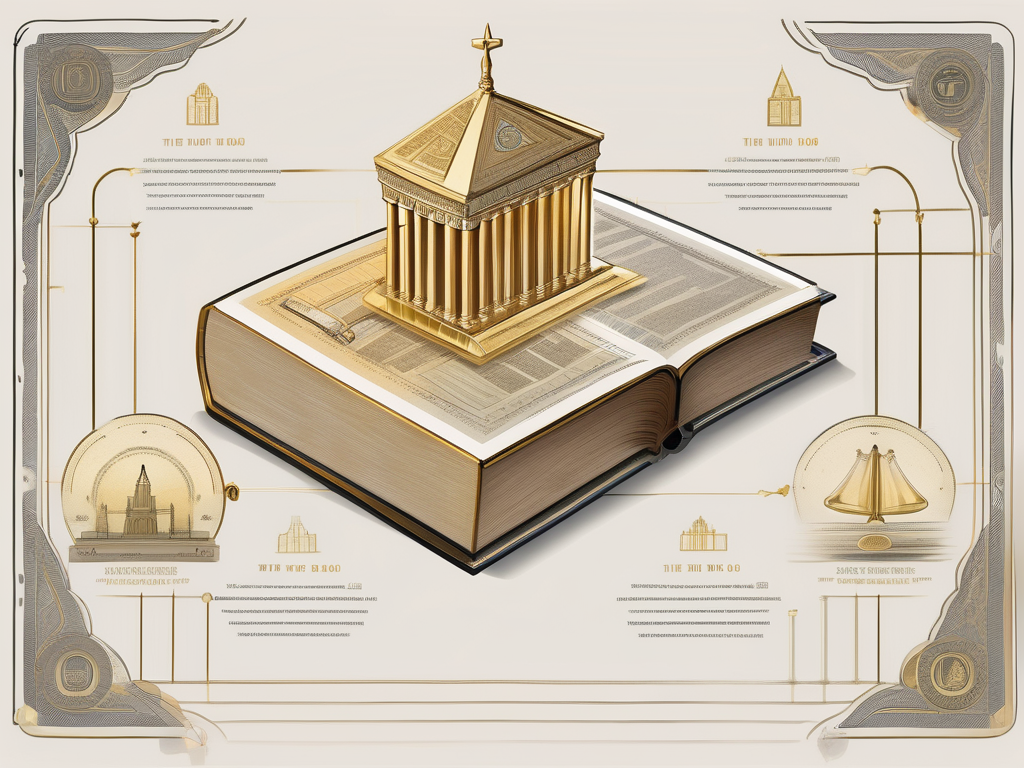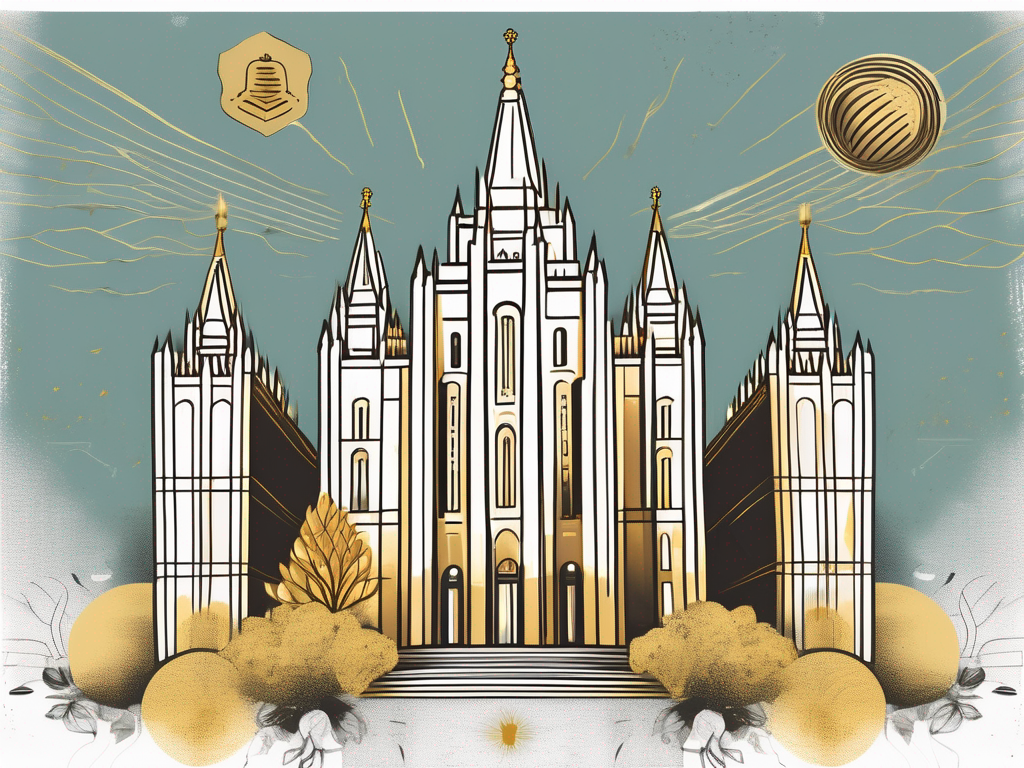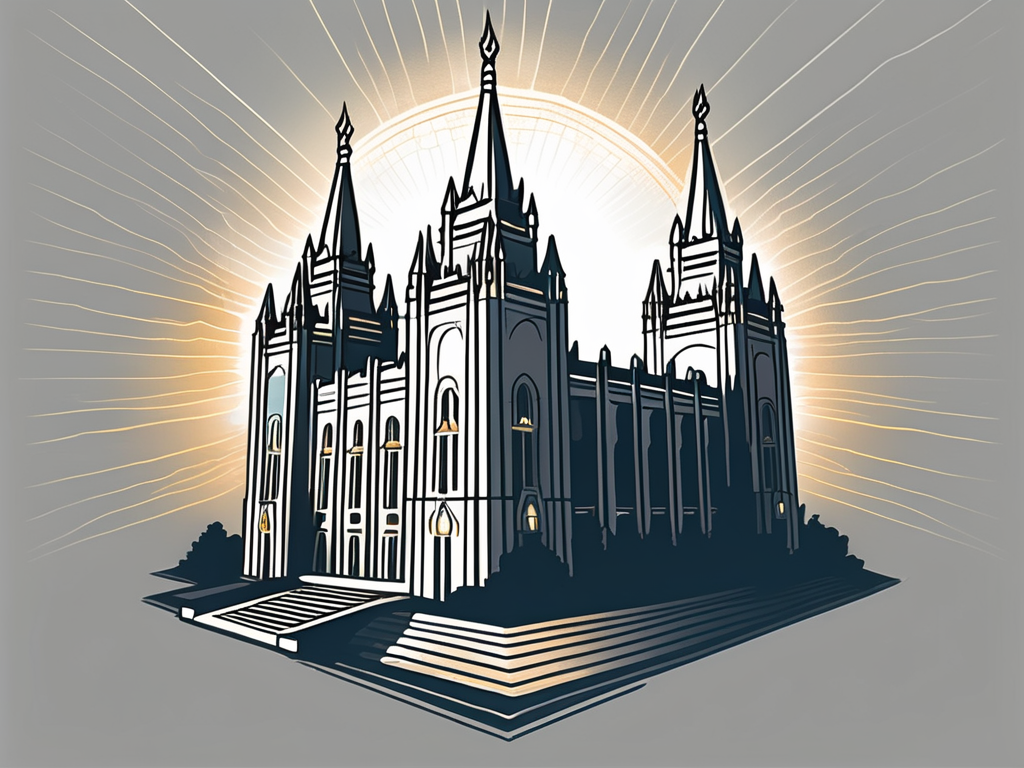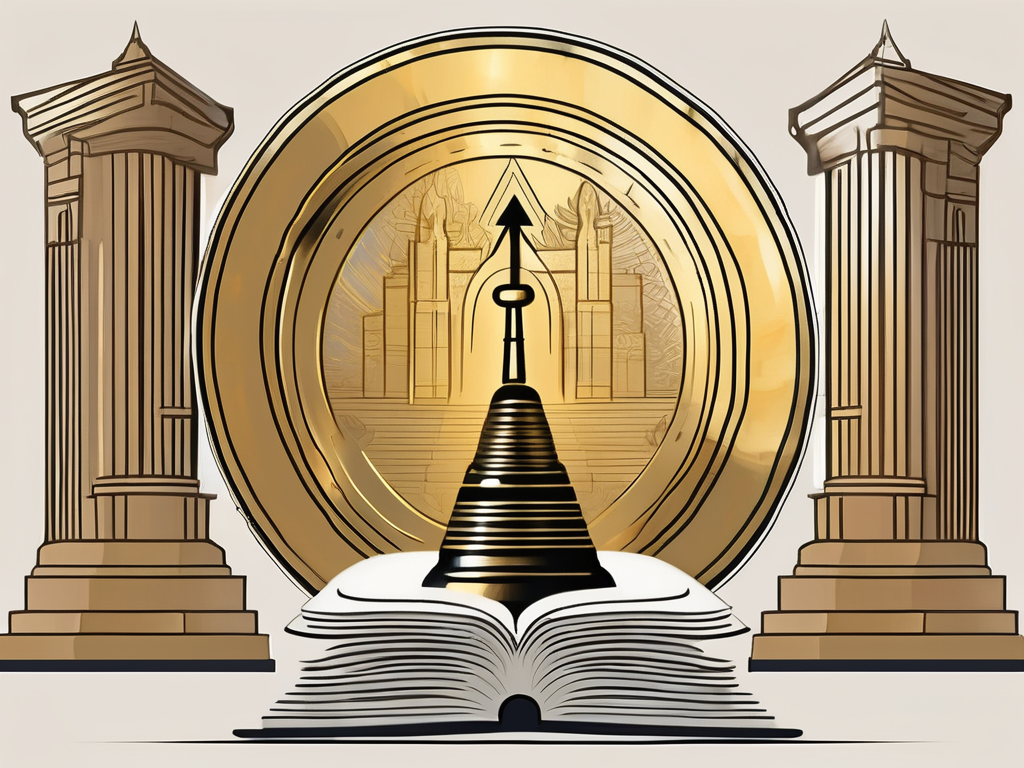Mormonism, formally known as The Church of Jesus Christ of Latter-day Saints, is a unique religious tradition originating in the United States in the early 19th century. With its rich history, distinctive beliefs, and comprehensive ritual practices, Mormonism remains a topic of fascination and curiosity for many. In this article, we will delve into the foundations of Mormonism, explore its rituals, and shed light on the daily practices of its followers.
Understanding the Foundations of Mormonism
The Origin and History of Mormonism
Mormonism traces its origins back to Joseph Smith, a young man who claimed to have been visited by God the Father and Jesus Christ in 1820. According to Smith, he was led to a set of golden plates buried in a hillside near his home. These plates, written in an ancient language, became known as the Book of Mormon. Smith’s translation of the plates served as the foundation for the new religious movement.
The story of Joseph Smith and the golden plates is a fascinating tale that has captivated the minds of believers and skeptics alike. Smith’s encounter with divine beings and the subsequent discovery of the plates has been a subject of much debate and speculation. Some view it as a miraculous event, while others question its authenticity. Regardless of one’s perspective, it is undeniable that this event was a pivotal moment in the history of Mormonism.
After the translation of the Book of Mormon, Joseph Smith faced numerous challenges and opposition. The early days of Mormonism were marked by persecution and hostility from those who viewed the movement as a threat. Smith and his followers were driven from place to place, seeking a safe haven where they could freely practice their faith.
Finally, in 1847, under the leadership of Brigham Young, the Mormons found their promised land in the Salt Lake Valley, present-day Utah. The journey to Utah was arduous and treacherous, with pioneers facing harsh conditions and the constant threat of attacks. Yet, their unwavering faith and determination propelled them forward, and they established a thriving community in the desert.
Key Beliefs and Principles of Mormonism
At the core of Mormonism lie a few fundamental beliefs and principles. Mormons believe in the divine nature of Jesus Christ and consider themselves to be Christians. They strive to follow His teachings and example, seeking to live a life of love, compassion, and service.
In addition to the Bible, Mormons accept other sacred texts as scripture. The Book of Mormon, which tells the story of ancient inhabitants of the Americas and their interactions with God, is a cornerstone of their faith. They also believe in the Doctrine and Covenants, a collection of revelations given to Joseph Smith and subsequent prophets, as well as the Pearl of Great Price, which contains additional scriptural texts and teachings.
One of the distinctive beliefs in Mormonism is the concept of eternal families. Mormons believe that marriages performed in temple ceremonies can be sealed for eternity, allowing families to be together beyond death. This belief brings comfort and hope to many followers, as they envision a future where they can be reunited with their loved ones in the presence of God.
Furthermore, Mormons place a strong emphasis on personal revelation and spiritual growth. They believe that each individual can receive guidance and inspiration from God through prayer and study. This belief encourages a personal and intimate relationship with the divine, fostering a sense of individual agency and responsibility.
In conclusion, the foundations of Mormonism are rooted in the extraordinary experiences of Joseph Smith and the early pioneers. From the discovery of the golden plates to the establishment of a thriving community in Utah, the history of Mormonism is filled with resilience, faith, and a deep commitment to their beliefs. Today, Mormons continue to uphold their core principles and strive to live according to the teachings of Jesus Christ, finding strength and purpose in their unique religious heritage.
An Overview of Mormon Rituals
Mormon rituals hold a significant place in the faith, encompassing various ceremonies and practices that are deeply meaningful to members of the Church. These rituals serve as important milestones in an individual’s spiritual journey and provide opportunities for personal growth, reflection, and connection with God.
The Significance of Baptism in Mormon Faith
Baptism holds a central place in Mormonism, representing a crucial step in the process of salvation and eternal progression. Mormons believe that baptism is essential for the remission of sins and the initiation into the Church. It is a sacred ordinance that symbolizes the cleansing and rebirth that comes with accepting the gospel of Jesus Christ.
When it comes to the timing of baptism, Mormons typically practice it at the age of eight, which is considered the age of accountability. This practice allows individuals to make a conscious decision to follow the teachings of Jesus Christ and become official members of the Church. It is a significant moment in a young person’s life, marking their commitment to live according to the principles of the gospel.
Furthermore, the act of baptism in the Mormon faith is usually performed by immersion, wherein the individual is fully immersed in water. This method symbolizes not only the cleansing of sins but also the burial of the old self and the emergence of a new life dedicated to following Christ.
The Sacredness of Confirmation and Blessing
Following baptism, Mormons participate in a ceremony called confirmation. This ritual holds great importance as it signifies the official membership of individuals in the Church. During the confirmation ceremony, members are blessed and confirmed by the laying on of hands, a sacred act performed by those in authority.
Through this laying on of hands, individuals receive the gift of the Holy Ghost, believed to provide guidance, comfort, and spiritual gifts. The presence of the Holy Ghost is seen as essential in helping individuals navigate their lives, make righteous choices, and receive personal revelation from God.
In addition to confirmation, blessings play a vital role in the lives of Mormons. These blessings are given by those who hold the priesthood authority and are believed to bring spiritual strength, healing, and guidance. They can be given for various reasons, such as the blessing of newborn children or offering comfort to the sick. These blessings are seen as a way for individuals to receive divine intervention and support during challenging times.
The Role of the Sacrament in Worship
Every Sunday, Mormons gather for a worship service known as sacrament meeting. During this meeting, members partake in the sacrament, which is a deeply significant and sacred experience for Mormons.
The sacrament is similar to the practice of communion in other Christian traditions, involving the eating of bread and the drinking of water. These elements symbolize the body and blood of Jesus Christ, representing His sacrifice for humanity. As Mormons partake of the sacrament, they are reminded of Christ’s atonement and the need for repentance and renewal in their lives.
Participating in the sacrament is a solemn and introspective act for Mormons. It provides an opportunity for individuals to reflect on their relationship with God, seek forgiveness for their shortcomings, and recommit themselves to living according to the teachings of Jesus Christ. It is a time of spiritual introspection and renewal, fostering a sense of unity and connection with God and fellow believers.
Mormon Practices and Daily Life
Prayer and Scripture Study in Mormon Life
Mormons emphasize the importance of personal and family prayer. They believe that prayer connects them with God and provides guidance, comfort, and strength in daily life. Family prayer is particularly valued as a way to foster unity and understanding among family members.
In addition to personal and family prayer, Mormons also participate in regular congregational prayer during their worship services. These collective prayers allow Mormons to come together as a community, lifting their voices in unison to express their devotion and seek divine intervention. The act of praying together strengthens their sense of belonging and reinforces their shared beliefs.
Scripture study also plays a vital role in Mormon daily life. Mormons are encouraged to study the scriptures, including the Bible, the Book of Mormon, and other Latter-day Saint texts, on a regular basis. This study helps them deepen their understanding of the gospel and gain personal insights.
Moreover, Mormons engage in group scripture study sessions, where they gather with fellow believers to discuss and analyze the teachings found within the sacred texts. These study sessions provide an opportunity for Mormons to learn from one another, share personal experiences, and gain a broader perspective on the scriptures.
The Importance of Family Home Evening
A unique practice in Mormonism is the weekly Family Home Evening. This designated evening provides an opportunity for families to come together, discuss their faith, and engage in activities that strengthen their bonds. Family Home Evening is seen as a way to prioritize family relationships and create a nurturing and loving environment.
During Family Home Evening, families engage in various activities that promote spiritual growth, such as reading scriptures, singing hymns, and sharing personal testimonies. These activities not only deepen their understanding of the gospel but also foster a sense of unity and love within the family unit.
Furthermore, Family Home Evening often includes fun and recreational activities that allow families to relax and enjoy each other’s company. From board games to outdoor adventures, these activities provide an opportunity for families to create lasting memories and strengthen their emotional connections.
The Role of Church Attendance and Service
Regular church attendance is encouraged among Mormons. Each week, Mormons gather for Sunday worship services, which include a variety of classes and meetings catering to different age groups. Attending church allows Mormons to deepen their knowledge, worship together, and support one another in their spiritual journeys.
Aside from Sunday worship services, Mormons also participate in midweek activities and gatherings organized by their local congregations. These activities range from youth programs and educational classes to social events and community service projects. By actively engaging in these activities, Mormons build strong relationships with fellow believers and strengthen their sense of community.
Service is also an integral part of Mormon life. Mormons believe in actively serving others, both within the Church and in the wider community. From participating in organized service projects to offering help and support to those in need, Mormons strive to follow the example of Jesus Christ and make a positive difference in the world.
Additionally, Mormons engage in missionary work, dedicating a significant portion of their lives to spreading their faith and serving others. Whether it’s through local outreach efforts or international missions, Mormons actively seek opportunities to share their beliefs and provide assistance to those seeking spiritual guidance.
In conclusion, Mormon practices and daily life revolve around prayer, scripture study, family bonding through Family Home Evening, regular church attendance, and active service. These practices not only strengthen individual faith but also foster a sense of unity, love, and community among Mormons.
Mormon Temple Rituals and Ordinances
The Purpose and Process of Endowment
Mormon temples hold a special place in the faith, as they are considered to be houses of God. Within these sacred spaces, Mormons participate in rituals and ordinances that strengthen their spiritual connections and understanding.
One such ritual is the endowment. Endowment refers to a series of covenants and instructions that Mormons receive in the temple. It is seen as a personal and deeply spiritual experience that prepares individuals for the eternities and provides guidance on how to live a meaningful and fulfilled life.
The Meaning Behind Sealing
Another significant temple ritual is known as sealing. Sealing refers to the eternal marriage ceremony, where couples are united not only for this life but also for the life to come. Mormons believe that through sealing, families can remain together beyond death and continue their relationships in the eternal realm.
The Practice of Baptism for the Dead
Mormons believe in the opportunity for salvation for all people, regardless of whether they had the chance to accept the gospel in their mortal lives. To facilitate this belief, Mormons perform a practice known as baptism for the dead.
Baptism for the dead involves performing vicarious baptisms on behalf of deceased individuals. Mormons believe that these individuals have the opportunity to accept or reject the baptism performed on their behalf in the spirit world.
In conclusion, exploring Mormon rituals and practices offers a comprehensive insight into the beliefs and traditions of this unique religious tradition. From the foundations of Mormonism to daily practices and temple rituals, Mormons embrace a rich tapestry of spiritual experiences. Whether it be through baptism, the sacrament, or the rituals performed in temples, these practices serve as a means of strengthening faith, fostering unity, and seeking divine guidance. Understanding Mormon rituals and practices allows for a deeper appreciation of the complexity and depth of this vibrant religious tradition.












